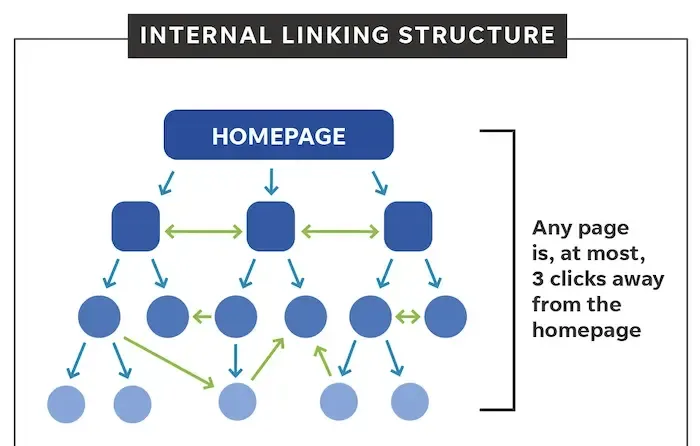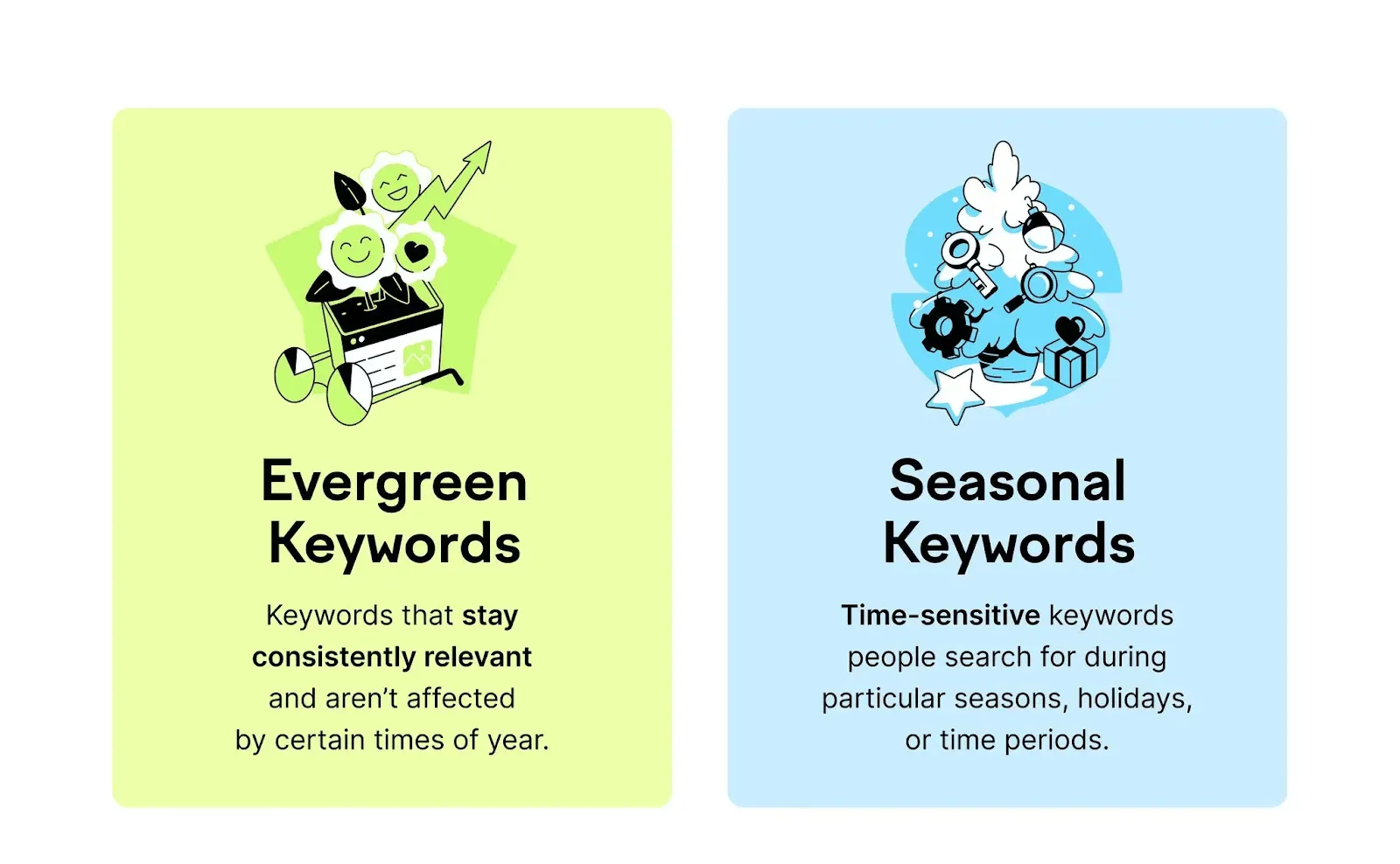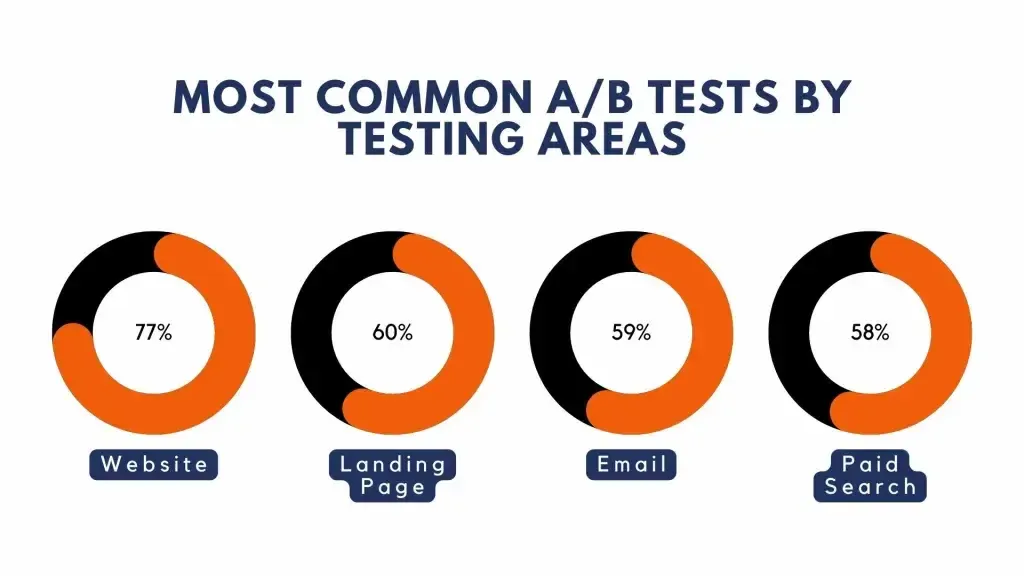
Your website's structure is like the foundation of a sturdy house. It needs to be well-planned and solid to support your seasonal campaigns effectively. Let's break it down step by step.
When visitors land on your website, they should be able to quickly find what they're looking for. Organize your products or content into clear categories. If you're selling fashion items, create categories like "Winter Collection," "Summer Essentials," and "Holiday Party Outfits."

Internal linking isn't just good for SEO; it also helps guide visitors through your website. Connect related pages to ensure a smooth navigation experience. For example, link from a winter coat product page to gloves and scarves within the same collection.
Dedicate specific landing pages to each major seasonal event or promotion. Use eye-catching banners, enticing headlines, and relevant product or content highlights. Make it clear that you're ready for the season.
Now that your website's structure is on point, it's time to ensure it shines in search engine results during peak seasons.

Identify and target seasonal keywords that potential customers are likely to search for. If you're selling Halloween costumes, use keywords like "Halloween costumes 2024" or “spooky costume ideas.”
Update your content to reflect the current season. Write blog posts, articles, or product descriptions that are timely and relevant. Share tips, guides, or stories related to the season to engage your audience.
Don't forget about mobile users! Ensure that your website is mobile-friendly, as many shoppers use their smartphones to browse and shop during peak seasons.
A seamless user experience can make or break your seasonal campaigns.
In the digital age, patience is in short supply. Optimize your website for speed to reduce bounce rates. A faster website means happier customers.
Make the checkout process as smooth as possible. Reduce friction and steps required to complete a purchase. Consider offering guest checkout options.
Expect an influx of customer inquiries during peak seasons. Ensure your customer support team is prepared and consider creating a seasonal FAQ section to address common questions.
Seasonal optimization isn't a one-time deal. It's an ongoing process of analyzing, adjusting, and repeating what works.
Use tools like Google Analytics to monitor your website's performance during different seasons. Identify trends, conversion rates, and areas that need improvement.

Experiment with different strategies and elements on your website, such as call-to-action buttons, banners, or product placements. A/B testing can reveal what resonates best with your audience.
After each peak season, conduct a thorough evaluation. What worked well, and what could be improved? Use these insights to prepare for the next seasonal rush.
In the ever-changing digital landscape, maximizing seasonal performance through site architecture optimization is a must for e-commerce success. By carefully structuring your website, optimizing for search engines, prioritizing user experience, and continuously analyzing and adjusting, you can ensure that your website is primed to shine during every peak season. Remember, it's not just about selling products; it's about creating memorable experiences for your customers. So, gear up and get ready to make each season your best season yet!
1. Why is site architecture important for seasonal success?
Site architecture provides a structured framework for your seasonal campaigns, making it easier for visitors to find what they need and boosting SEO.
2. How can I categorize my products effectively?
Categorize products based on season or occasion, creating clear distinctions that help shoppers navigate to relevant items effortlessly.
3. Why is internal linking crucial for seasonal optimization?
Internal linking guides visitors to related products or content, keeping them engaged and encouraging exploration within your website.
4. What are seasonal keywords, and why should I use them?
Seasonal keywords are specific search terms related to a particular season or event. They help you target a relevant audience during peak times.
5. How can I keep my content fresh and relevant for each season?
Regularly update product descriptions, blog posts, and other content to align with the current season's trends and themes.
6. What are some mobile optimization tips for seasonal success?
Ensure your website is mobile-friendly by optimizing images, improving page load speed, and simplifying navigation for smartphone users.
7. Why is a streamlined checkout process important for seasonal campaigns?
A streamlined checkout process reduces cart abandonment rates, making it easier for customers to complete their purchases during busy seasons.
8. How can I provide excellent customer support during peak times?
Prepare your customer support team for increased inquiries, and consider creating a seasonal FAQ section to address common questions proactively.
9. What should I track and analyze to evaluate seasonal performance?
Use tools like Google Analytics to monitor traffic, conversion rates, and user behavior during different seasons.
10. How can I make the most of post-season evaluations?
Analyze the data collected during peak seasons to identify strengths and weaknesses, then use this information to refine your strategies for the next season.







































